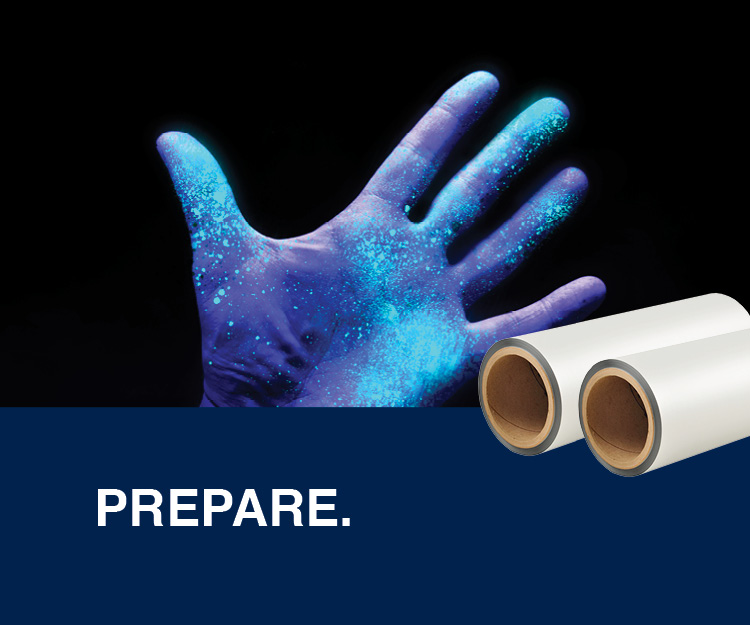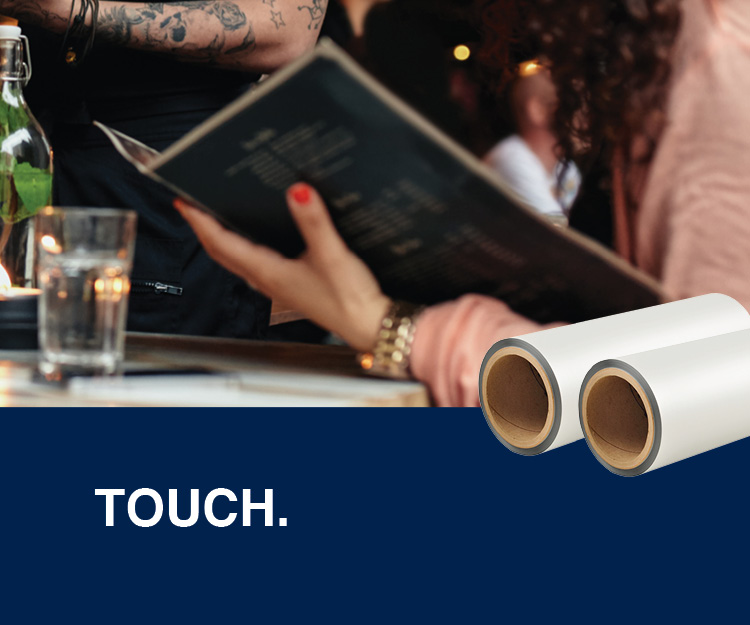Antibacterial Laminates: A Line of Defense Against the Spread of Germs
- Published: May 03, 2021
 As America, and the entire world, begins to slowly emerge from a pandemic like no other, a few things have become certain. The way we interact with other humans outside of our near-operating sphere is forever changed. We are experiencing a heightened emphasis on health, sanitation, and cleanliness globally that is unprecedented. As a result, the interest in germ-inhibiting films and easy-to-clean substrates has skyrocketed.
As America, and the entire world, begins to slowly emerge from a pandemic like no other, a few things have become certain. The way we interact with other humans outside of our near-operating sphere is forever changed. We are experiencing a heightened emphasis on health, sanitation, and cleanliness globally that is unprecedented. As a result, the interest in germ-inhibiting films and easy-to-clean substrates has skyrocketed.
Recently introduced antibacterial and antimicrobial films and technologies are effective against a wide spectrum of harmful bacteria, including MRSA and E. coli. The active ingredient in many of these films is often silver or copper, known over centuries for their antiseptic properties. New organic-based materials have also shown to be lethal to various bacteria.
In April, Nobelus released two laminates which are engineered to provide long-lasting antibacterial qualities. Both are extremely effective in suppressing a wide spectrum of bacteria. These films are completely safe for human and animal contact and are FDA-compliant for indirect food contact.
Silver ion technology is invisible and odorless and is now available on the LuxeFilm ScuffProof® Antibacterial Laminate. Manufactured by placing a layer of silver ions directly within the topcoat, the incredibly durable scuff-resistant surface allows for direct contact and cleaning, with no reduction of antibacterial efficacy. Silver ion technology kills up to 99.9% of bacteria to include antibiotic-resistant bacteria such as Vancomycin-resistant Enterococcus (VRE) and Staphylococcus Aureus (MRSA).
 PlatinumOPP™ Antibacterial Laminate, another new film from Nobelus, is made with a plant-based, all-natural compound which kills over 99.9% of bacteria upon contact. Applied within the base of the laminate, the organic material diminishes a variety of bacteria, including Colon Bacillus, Staphylococcus Aureus, and Salmonella Typhimurium. Completely safe, it creates no irritation for skin or eye contact and is non-toxic for humans and animals.
PlatinumOPP™ Antibacterial Laminate, another new film from Nobelus, is made with a plant-based, all-natural compound which kills over 99.9% of bacteria upon contact. Applied within the base of the laminate, the organic material diminishes a variety of bacteria, including Colon Bacillus, Staphylococcus Aureus, and Salmonella Typhimurium. Completely safe, it creates no irritation for skin or eye contact and is non-toxic for humans and animals.
Bacterial infections across the globe are on the rise, and medical practitioners and service-sector professionals are keen on ways to safeguard patients and patrons alike. Antibacterial films serve as another line of defense against the spread of germs and disease in high-use areas to prevent cross-contamination. Germ-inhibiting laminates are suitable for use in retail environments on consumer goods packaging, pharmaceutical packaging, books, labels or on posters, signage and point-of-sale surfaces - anywhere consumers and employees have contact and interact.
To learn more about Nobelus antibacterial films and other specialty laminates visit: www.nobelus.com.








